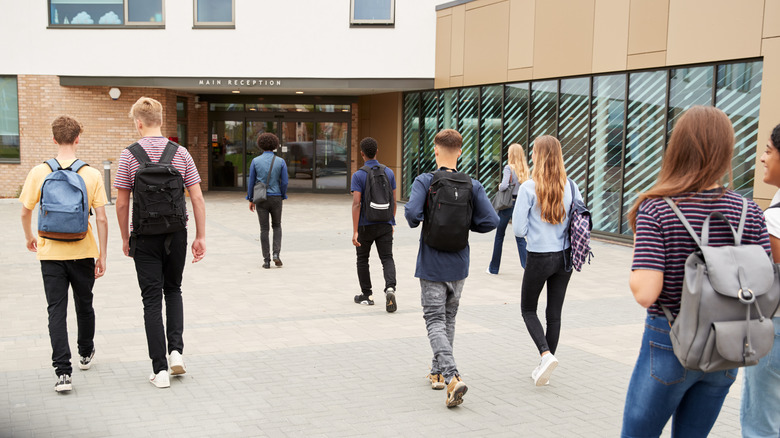School Starts Too Early For Students. Here's Why
Anyone who has ever been a student can agree that waking up for school was never their favorite part of the day. Most schools' early start times do not make this any easier. The American Academy of Pediatrics (AAP) recommends that schools start no earlier than 8:30AM, but unfortunately fewer than 7% of high schools and 17% of middle schools follow this recommendation (per CDC).
It is easy to say that students should just go to bed earlier. With our current school start times, making arrangements to do this would indeed be a great way to get enough sleep, but it is not easy as it sounds. The CDC notes that teenagers experience delays in circadian rhythms, causing them to become tired later at night. When this natural phenomenon is combined with an early school start times, it is no wonder that most students don't get as much sleep as they need (per AAP).
The benefits of later school start times
For optimal health and well-being, pre-teens need 9-12 hours of sleep and teenagers need 8-10 hours of sleep, according to the American Academy of Sleep Medicine. A 2015 study (via CDC) found that only 42% of middle schoolers and 27% of high schoolers meet these recommendations.
The AAP notes that starting school later would be an effective way for schools to combat this sleep deficiency. This would benefit students' well-being and performance in a variety of ways, such as by improving their grades and quality of life, reducing their risk of obesity and mental illness, and reducing their risk of car crashes. A study conducted by the Journal of Clinical Sleep Medicine observed that car crashes by teen drivers declined by 16.5% in school districts that implemented later start times.
There may even be long-term health benefits, with the AAP suggesting that later start times may reduce the risk of cardiovascular disease and metabolic dysfunction, conditions commonly associated with chronic sleep restriction.


